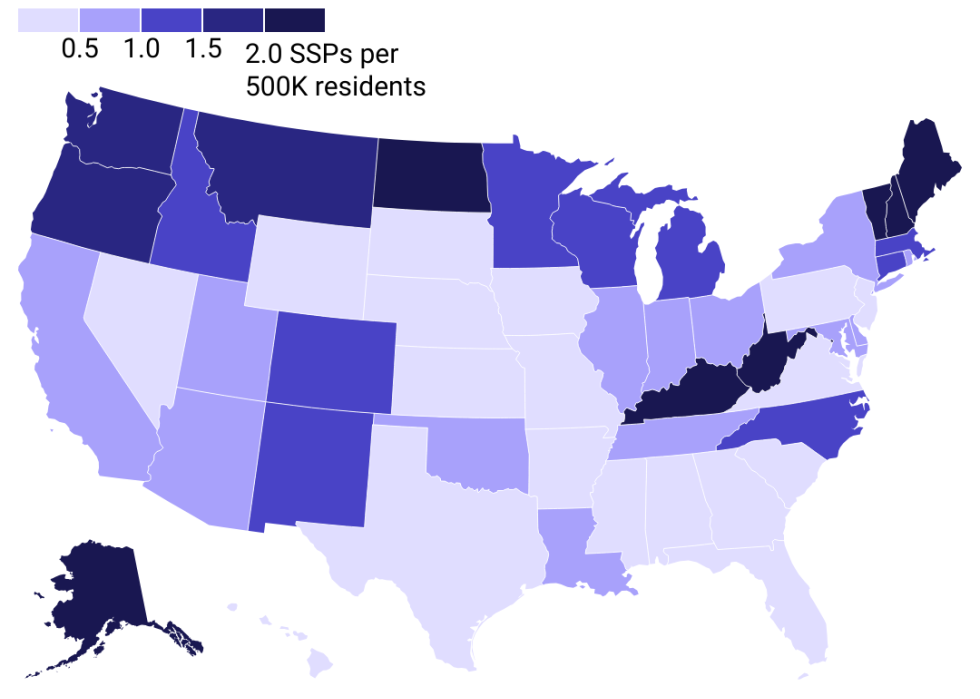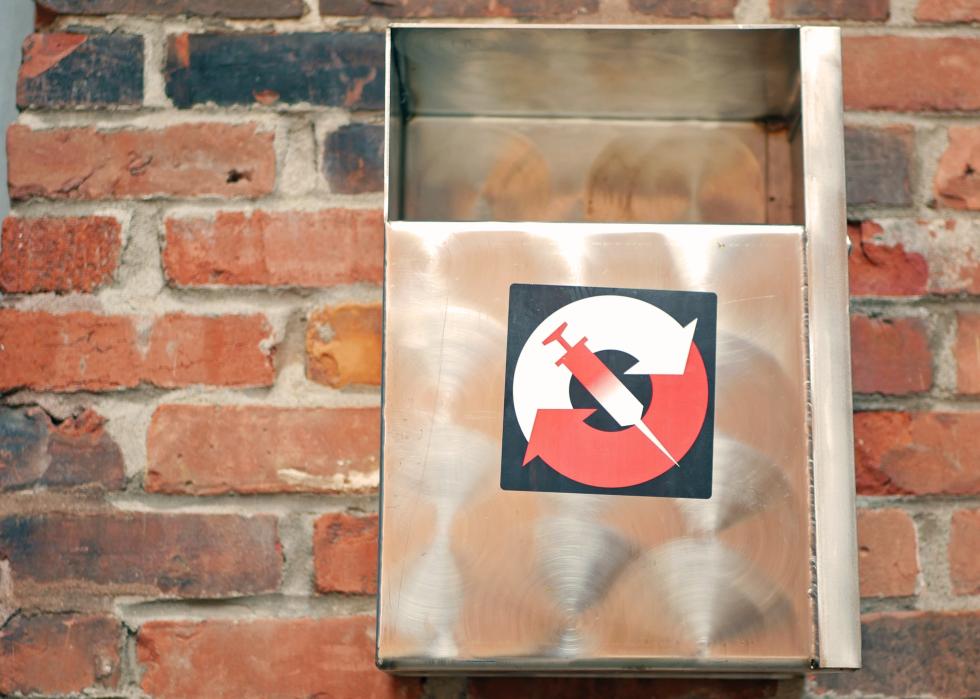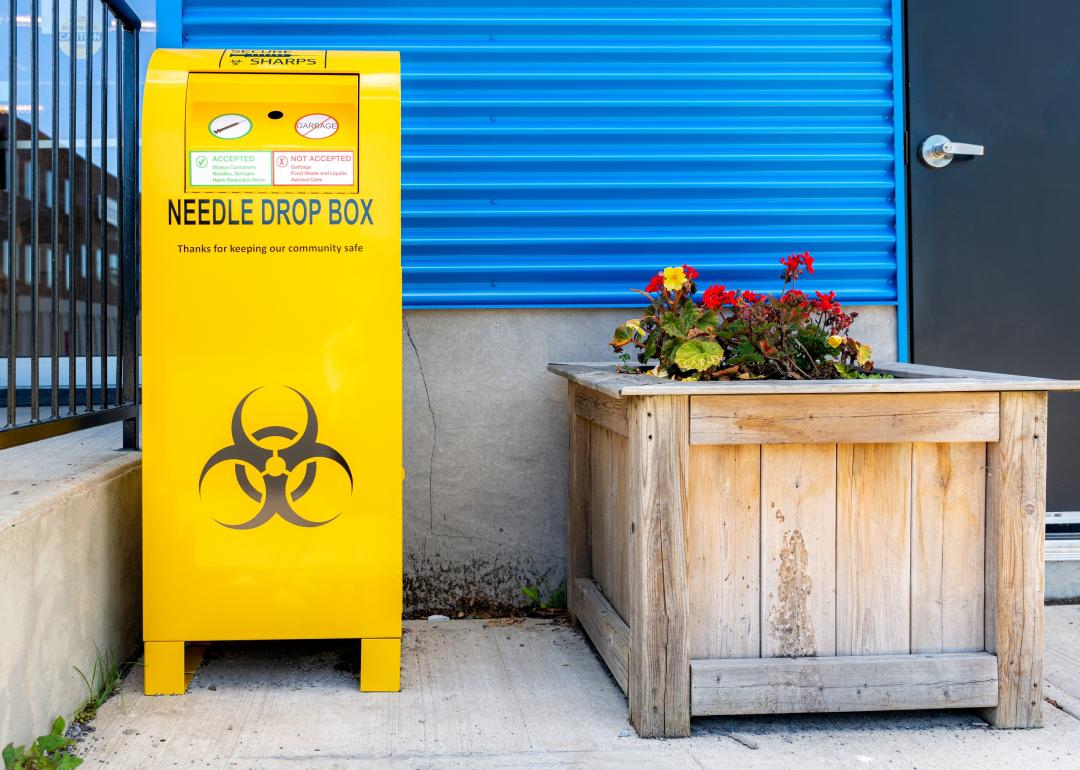How syringe exchanges in Washington reduce the spread of disease

Despite the lifesaving potential of these kinds of programs, syringe exchanges were federally banned at the national level from 1988 to 2015. A study published in the International Journal on Drug Policy attributes the end of the ban to shifting perspectives and lessons learned during the HIV/AIDS epidemic.
The rise of HIV infection related to the growth of the opioid epidemic in the early 2010s was powerful enough to sway politicians who had been reluctant to embrace syringe exchanges. States in the years since passed their own laws to create exchange programs. Most recently, a bill authorizing community syringe exchanges passed in the Nebraska Legislature but was ultimately vetoed by Gov. Jim Pillen.
Syringe exchanges in Washington include:
Blue Mountain Heart To Heart
Walla Walla, Washington
Clallam County Health and Human Services Syringe Service Program - Forks
Forks, Washington
Clallam County Health and Human Services Syringe Service Program - Port Angeles
Port Angeles, Washington
Clark County Public Health's Syringe Services Harm Reduction Center
Vancouver, Washington
Cowlitz Family Health Center Harm Reduction Program
Kelso, Washington
EGYHOP
Olympia, Washington
Gather Church Harm Reduction Program
Fords Prairie, Washington
Grant County Syringe Service Program
Moses Lake, Washington
Grays Harbor Syringe Service
Aberdeen, Washington
Hepatitis Education Project (HEP)
Seattle, Washington
Island County Public Health Syringe Exchange
Langley, Washington
Jefferson County Public Health
Port Townsend, Washington
Lummi Harm Reduction
Bellingham, Washington
Never Share Syringe Service Program(SSP)
Ellensburg, Washington
Northeast Tri County Health's Syringe Services Program
Colville, Washington
Northeast Tri-County Health District
Colville, Washington
Okanogan County Syringe Exchange Program
Okanogan, Washington
People's Harm Reduction Alliance
Seattle, Washington
Phoenix RISE Mobile Syringe Exchange
Mt. Vernon, Washington
PHRA, Ostrich bay
Bremerton, Washington
Project NEON
Seattle, Washington
Robert Clewis Center
Seattle, Washington
Spokane Regional Health District Needle Exchange
Spokane, Washington
Substance Use Mobile Outreach of Mason County
Belfair, Washington
Tacoma Needle Exchange
Tacoma, Washington
Thurston County Syringe Services Program
Olympia, Washington
Whatcom County Syringe Exchange Program
Bellingham, Washington
Whitman County Public Health Needle Exchange - Colfax
Colfax, Washington
Whitman County Public Health Needle Exchange - Pullman
Pullman, Washington

Critics often argue that needle exchanges promote drug use at the expense of taxpayer dollars, or that they feel unsafe around the people with substance use disorder that use them.
Research conducted over three decades, however, shows that syringe exchange programs provide a benefit to communities, according to the National Institutes of Health.
A 2019 study from the National Bureau of Economic Research found that syringe exchange programs reduced HIV diagnoses by as much as 18%. They've also been shown to save taxpayers money. In Indiana, a state-implemented syringe exchange program is expected to save taxpayers $120 million. People who use syringe service programs are also five times more likely to begin a drug treatment program and three times as likely to quit injection drug abuse, according to the CDC.
This story features data reporting by Elena Cox, writing by Dom DiFurio, and is part of a series utilizing data automation across 46 states.
